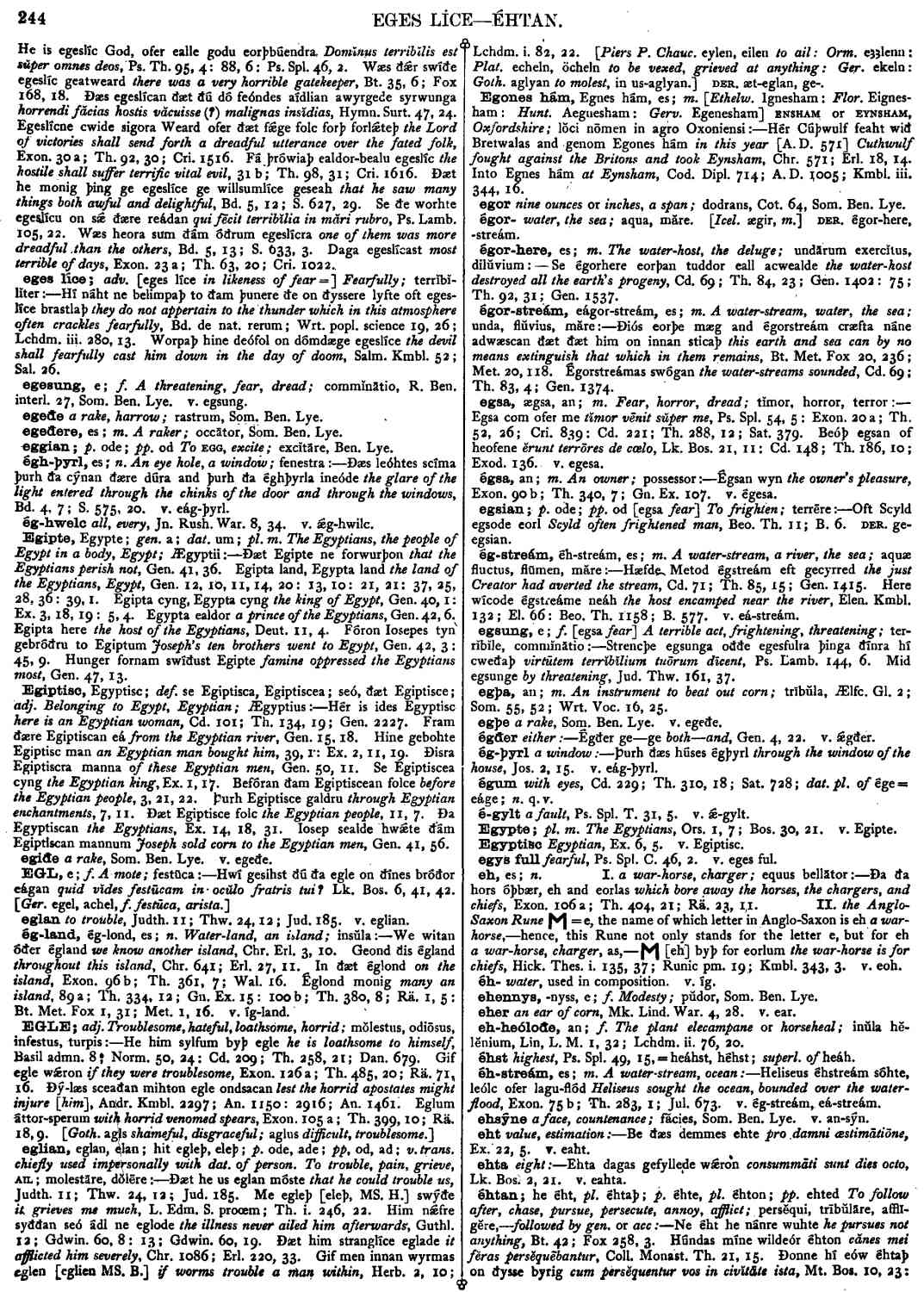eglian
- verb [ weak ]
-
Ðæt he us eglan móste
that he could trouble us,
- Judth. 11 ;
- Thw. 24, 12;
- Jud. 185 .
-
Me egleþ [eleþ, MS. H.] swýðe
it grieves me much,
- L. Edm. S. procem ;
- Th. i. 246, 22.
-
Him nǽfre syððan seó ádl ne eglode
the illness never ailed him afterwards,
- Guthl. 12 ;
- Gdwin. 60, 8: 13 ;
- Gdwin. 60, 19.
-
Ðæt him stranglíce eglade
it afflicted him severely,
- Chr. 1086 ;
- Erl. 220, 33.
-
Gif men innan wyrmas eglen [eglien MS. B.]
if worms trouble a man within,
- Herb. 2, 10;
- Lchdm. i. 82, 22.
- [Piers P. Chauc. eylen, eilen to ail: Orm. eȝȝlenn: Plat, echeln, öcheln to be vexed, grieved at anything: Ger. ekeln: Goth. aglyan to molest, in us-aglyan.] DER, æt-eglan, ge-.
Bosworth, Joseph. “eglian.” In An Anglo-Saxon Dictionary Online, edited by Thomas Northcote Toller, Christ Sean, and Ondřej Tichy. Prague: Faculty of Arts, Charles University, 2014. https://bosworthtoller.com/9129.
Checked: 1